Kawsar Ahmed
BeliN: A Novel Corpus for Bengali Religious News Headline Generation using Contextual Feature Fusion
Jan 02, 2025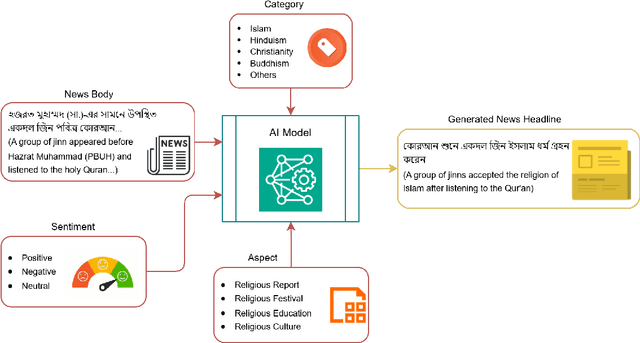
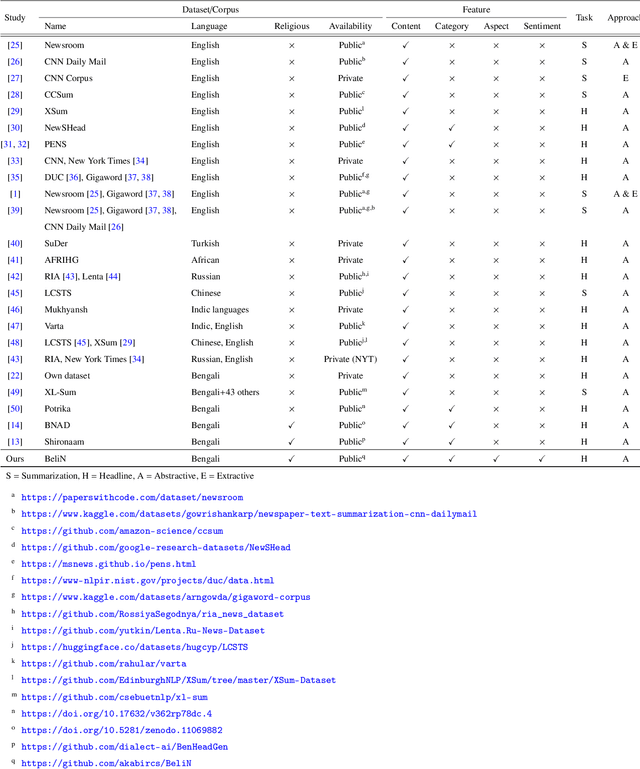


Abstract:Automatic text summarization, particularly headline generation, remains a critical yet underexplored area for Bengali religious news. Existing approaches to headline generation typically rely solely on the article content, overlooking crucial contextual features such as sentiment, category, and aspect. This limitation significantly hinders their effectiveness and overall performance. This study addresses this limitation by introducing a novel corpus, BeliN (Bengali Religious News) - comprising religious news articles from prominent Bangladeshi online newspapers, and MultiGen - a contextual multi-input feature fusion headline generation approach. Leveraging transformer-based pre-trained language models such as BanglaT5, mBART, mT5, and mT0, MultiGen integrates additional contextual features - including category, aspect, and sentiment - with the news content. This fusion enables the model to capture critical contextual information often overlooked by traditional methods. Experimental results demonstrate the superiority of MultiGen over the baseline approach that uses only news content, achieving a BLEU score of 18.61 and ROUGE-L score of 24.19, compared to baseline approach scores of 16.08 and 23.08, respectively. These findings underscore the importance of incorporating contextual features in headline generation for low-resource languages. By bridging linguistic and cultural gaps, this research advances natural language processing for Bengali and other underrepresented languages. To promote reproducibility and further exploration, the dataset and implementation code are publicly accessible at https://github.com/akabircs/BeliN.
Dependable Intrusion Detection System for IoT: A Deep Transfer Learning-based Approach
Apr 11, 2022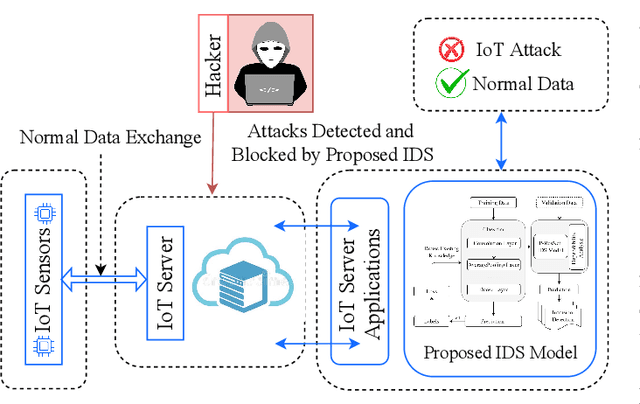
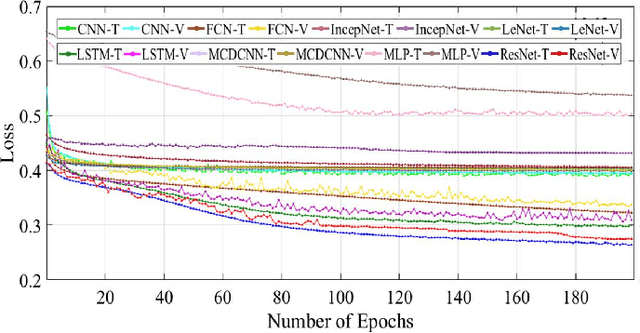
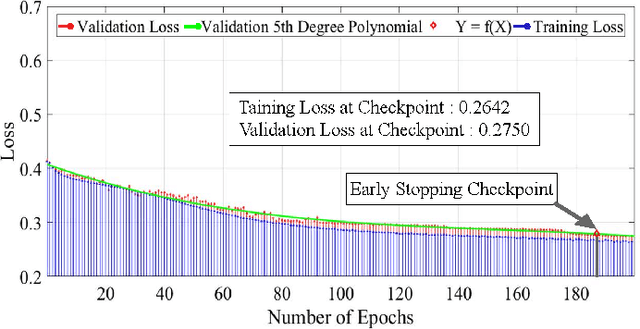
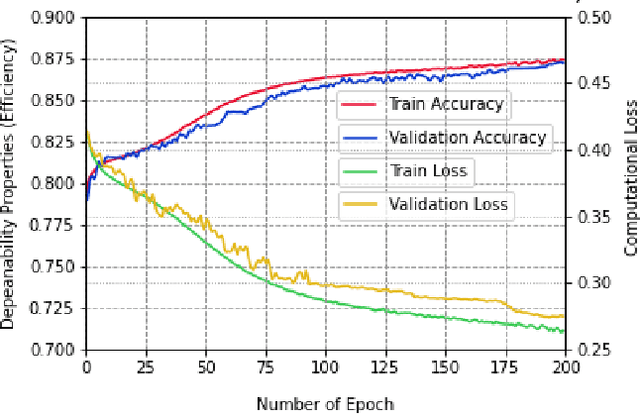
Abstract:Security concerns for IoT applications have been alarming because of their widespread use in different enterprise systems. The potential threats to these applications are constantly emerging and changing, and therefore, sophisticated and dependable defense solutions are necessary against such threats. With the rapid development of IoT networks and evolving threat types, the traditional machine learning-based IDS must update to cope with the security requirements of the current sustainable IoT environment. In recent years, deep learning, and deep transfer learning have progressed and experienced great success in different fields and have emerged as a potential solution for dependable network intrusion detection. However, new and emerging challenges have arisen related to the accuracy, efficiency, scalability, and dependability of the traditional IDS in a heterogeneous IoT setup. This manuscript proposes a deep transfer learning-based dependable IDS model that outperforms several existing approaches. The unique contributions include effective attribute selection, which is best suited to identify normal and attack scenarios for a small amount of labeled data, designing a dependable deep transfer learning-based ResNet model, and evaluating considering real-world data. To this end, a comprehensive experimental performance evaluation has been conducted. Extensive analysis and performance evaluation show that the proposed model is robust, more efficient, and has demonstrated better performance, ensuring dependability.
* 12 pages, 13 Figures, 4 tables IEEE Transaction
Deep Transfer Learning Based Intrusion Detection System for Electric Vehicular Networks
Jul 12, 2021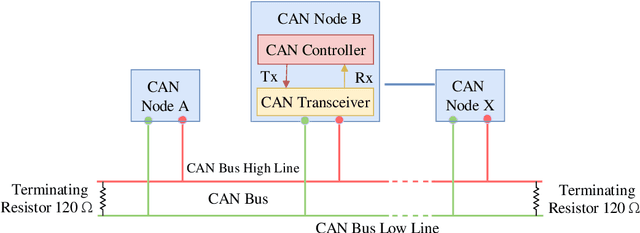
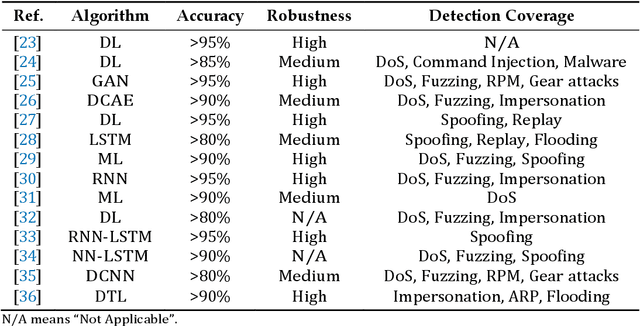
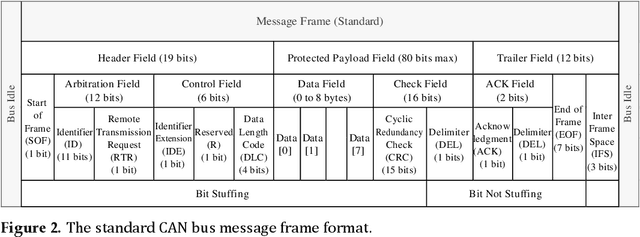

Abstract:The Controller Area Network (CAN) bus works as an important protocol in the real-time In-Vehicle Network (IVN) systems for its simple, suitable, and robust architecture. The risk of IVN devices has still been insecure and vulnerable due to the complex data-intensive architectures which greatly increase the accessibility to unauthorized networks and the possibility of various types of cyberattacks. Therefore, the detection of cyberattacks in IVN devices has become a growing interest. With the rapid development of IVNs and evolving threat types, the traditional machine learning-based IDS has to update to cope with the security requirements of the current environment. Nowadays, the progression of deep learning, deep transfer learning, and its impactful outcome in several areas has guided as an effective solution for network intrusion detection. This manuscript proposes a deep transfer learning-based IDS model for IVN along with improved performance in comparison to several other existing models. The unique contributions include effective attribute selection which is best suited to identify malicious CAN messages and accurately detect the normal and abnormal activities, designing a deep transfer learning-based LeNet model, and evaluating considering real-world data. To this end, an extensive experimental performance evaluation has been conducted. The architecture along with empirical analyses shows that the proposed IDS greatly improves the detection accuracy over the mainstream machine learning, deep learning, and benchmark deep transfer learning models and has demonstrated better performance for real-time IVN security.
* 23 Pages, 14 Figures, 6 Tables with Appendix
 Add to Chrome
Add to Chrome Add to Firefox
Add to Firefox Add to Edge
Add to Edge